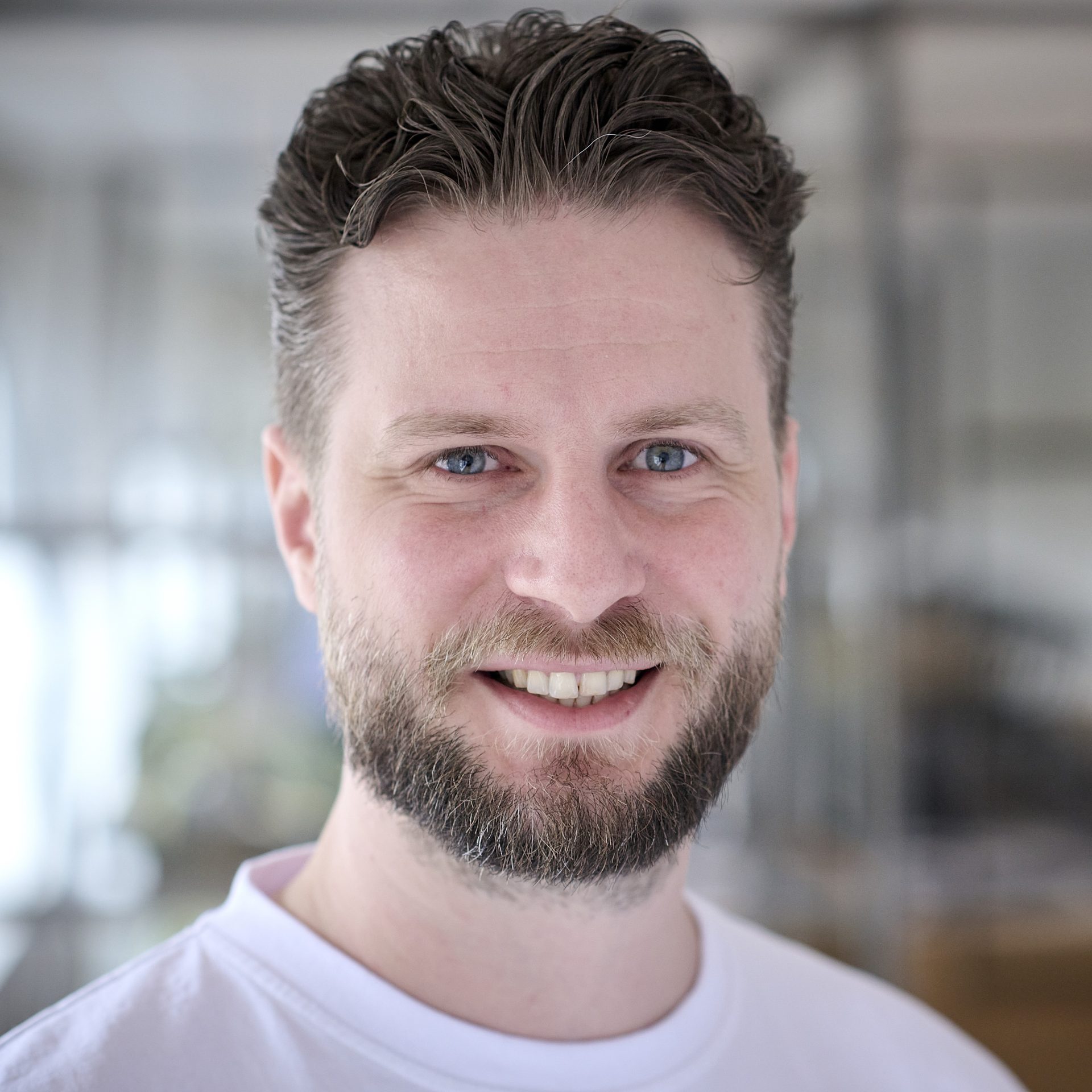Working life
You started at Schuberg Philis almost three years ago. How would you describe your role?
I’m a Functional Business Analyst though started out as a Functional Application Manager. Functional application management is more looking toward one specific application, being the go-to expert of that application. Being a functional business analyst is looking at processes as a whole and zooming out to see the full landscape and to get that to the next level; it’s more diverse. My position evolved into what it is today, as we saw there was a need internally for different capabilities and requests. My team is called the Backbone Team; we’re part of the Services team.
What does the Backbone Team do?
The Backbone Team consists of three sub-teams: FBA (Functional Business Analysts), Data Services, and Connect (in charge of developing our custom application). Together we all do implementation from A to Z, all the way up to adoption and including the run. You could say that we’re a project engine for all the customer teams and everyone that works at Schuberg Philis. We excel at diving deep into processes, finding how to automate them, and talking to different stakeholders of different areas within the company to see if we can make their life and work easier and more fun. We also want people to actually use the systems. It’s like: OK, cool, you have a new function; you created it for the needs of the person requesting it, and you also test it with them to ensure that they will like it. But now it’s open for a broader audience. How do you make sure that they will use it? So that’s the part of adoption. You can be creative in this. We have a green room at Schuberg Philis; I’ve made some cool videos to inspire and increase adoption through different methods. For example, to show people around on the tools that we have, I’ve made a parody of the Squid Game and a parody of Sherlock Holmes.
What is a typical day like?
I come into the office, look into my emails and my current projects, to see where everything stands or any request that I’m working on. I have a standup to discuss with the team what we’re going to work on today. At the moment, we’re migrating our integration platform which glues all the applications that we use in the core of our day-to-day work. So for me currently, my day involves figuring out what integrations do we still need to do and what phase are we in. It’s a combination of learning new skills, building, testing, making sure you’re aligned with your stakeholders, both technical and business. As a team, we really dive into these processes and we get a kick out of it. Some people might say: why do you think this kind of work is awesome? Because it’s logical and you can be creative in the way you implement the process. It’s fun to see the things that you create come alive in a sense – this really makes you want to quote Frankenstein.
Company culture
How is Schuberg Philis different from other places that you worked?
It is the structure. You can make the decisions. We are all seen as the experts in our respective fields. If you think a certain path is the way to go forward, do your research, talk to people around you, then go ahead and do it. You don’t need to go to a director; you don’t need to wait two months before someone says you can. And this ties in with trust. When you come to work at Schuberg Philis, trust is there 100% whereas at other companies, you need to build up the feeling that people trust you or that you’re capable. Here, the only thing left for you to do is be yourself and be confident about what you do because the confidence in you is already given by default.
On the topic of coming alive, you recently had a baby. How is balancing new fatherhood with work?
A lot of companies claim values that sometimes have a lot of marketing behind their message but aren’t actually put into practice. But at Schuberg Philis, a core belief that we express both internally and externally is one that we also live and breathe: “It’s the people, actually.” Related to that we say: “family first.” It’s more often that I am the one trying to stay late at the office to fix something because I want to, and my colleagues are like: “No, there are other things which are really important – even more important – such as family. Go home.” So that’s the way it worked for me: I could take all the time I wanted to be with my son when he was born. And that’s how it is still today. Since I’ve had my kid, I’m happy to say that I have enough time to dance, explore, and play with him every morning. Well, dancing – maybe not really, but he can already bob his head to the music and open his mouth doing something more like a singing face.
Passion project
Is dancing important to you?
I studied dancing at an academy alongside my high school, which was around 24 hours a week. It was quite tough, but really fun. We got tap dance, hip-hop, ballet, all different styles, and even singing and acrobatics. In the end, I did decide to stop and go ahead with just my academic studies. That was also because the dance world is quite tough; you’re at the optimal performing age for a set period and it’s really physical. I also really liked technology and computers and that did capture my heart more. So what I do is I dance my heart out in the weekends at a club or festival, though less so now that I’m a father.
Does the skillset you cultivated in dance inform the technical work you do?
Yeah, you could say that. There’s always a specific rhythm or a flow if you’re designing a process or building something. When working on a process, you might say, for example: “A goes to B and B to C and then to D. 1, 2, 3.” But I might see another more efficient or effective way to make a process flow to get something specific to happen. For example, if you do that in steps: a 1-2 step, a 3-4 step, and then follow with the A, B, C, D. You could say that developing something or making a new process is like a dance. I start with one partner, and I need to make sure that when we’re correctly coordinating our steps, we end up in a new desired location – all the while keeping the rhythm going.
And when you’re helping people learn to use a new function, maybe fielding all their questions feels like a waltz?
Hahaha. Or sometimes an extensive rap battle!
Curious to know more about how more colleagues spend their days? See the whole series here.




